18. Lake in a Chest
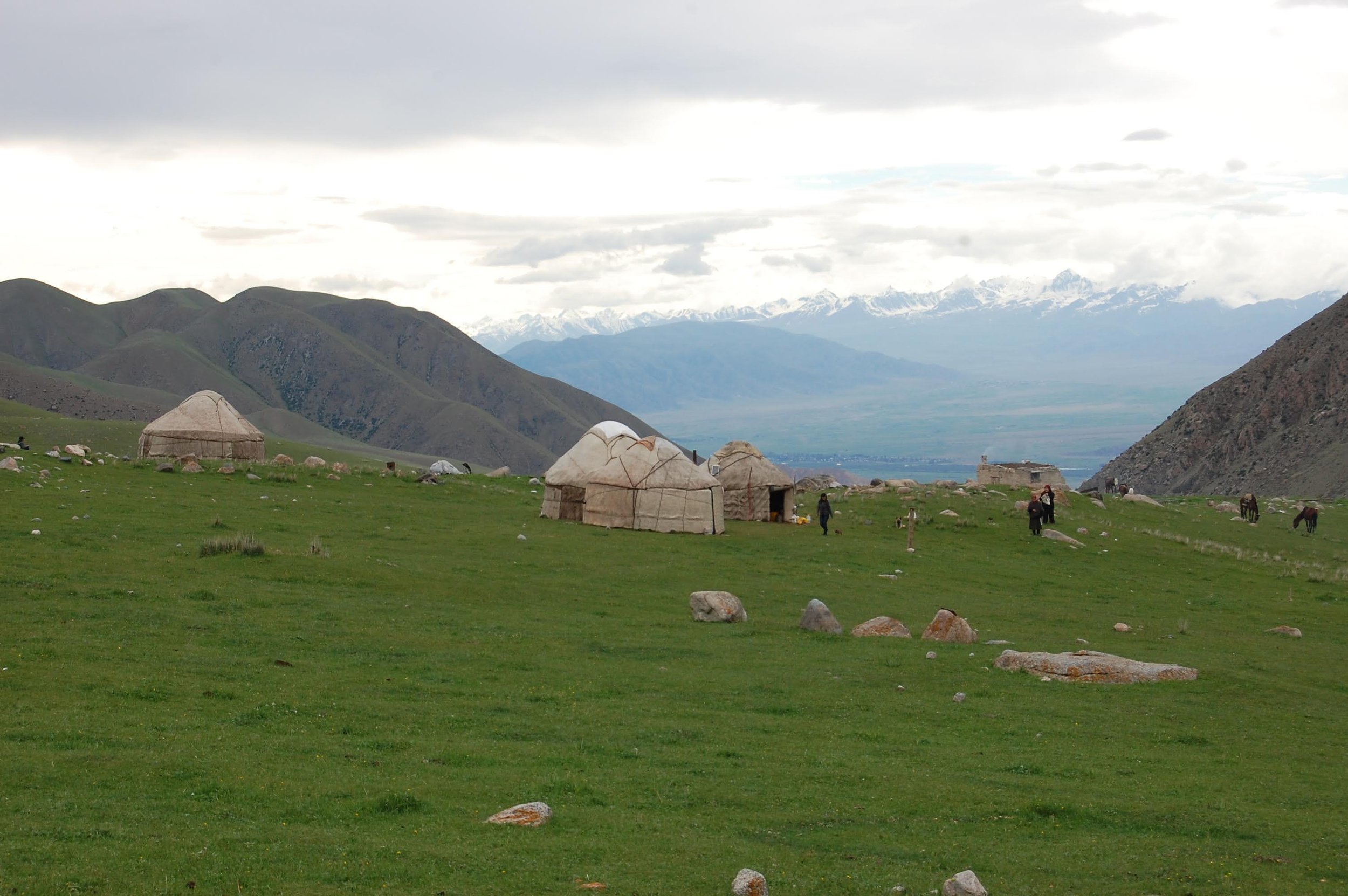
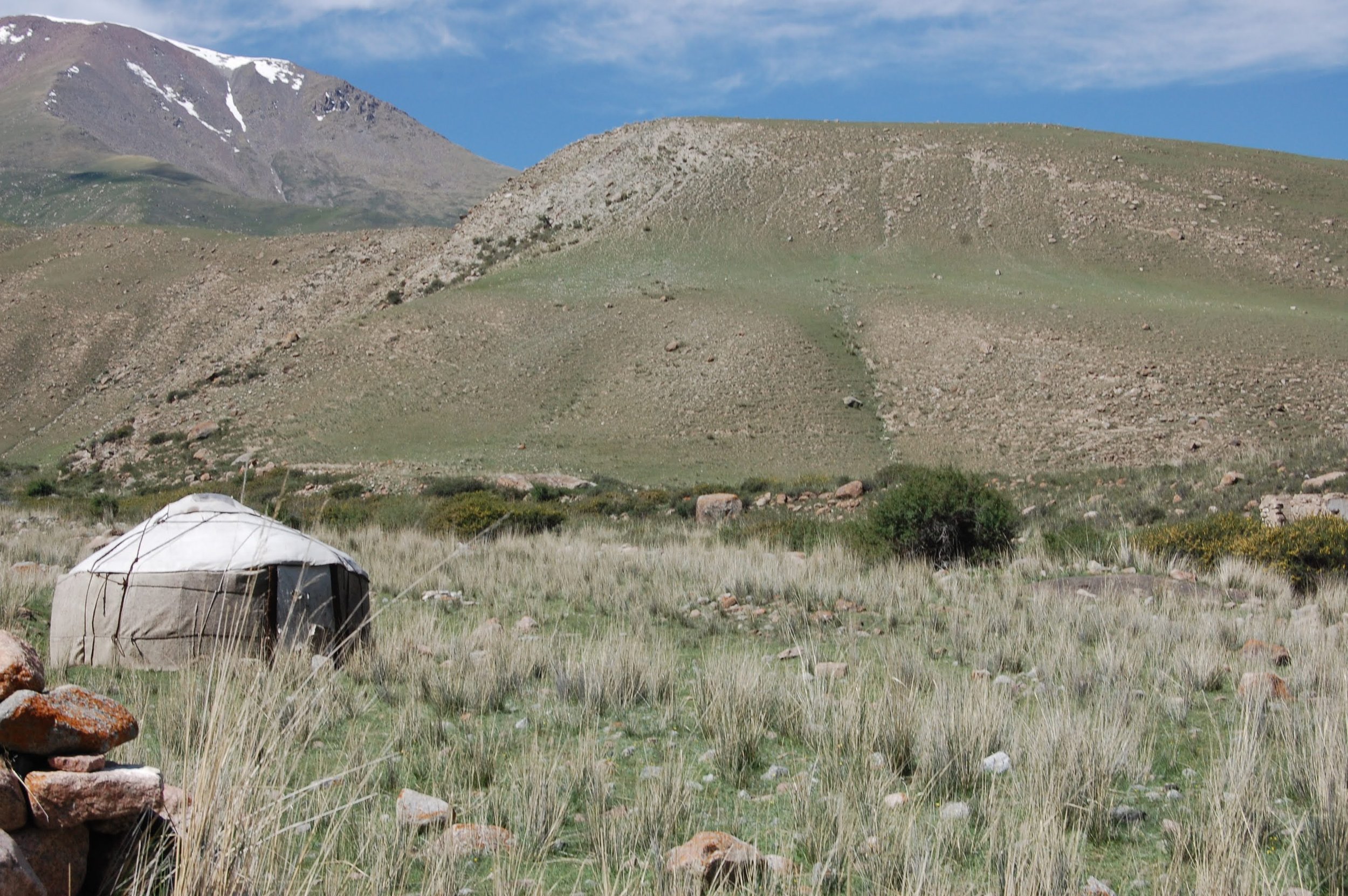
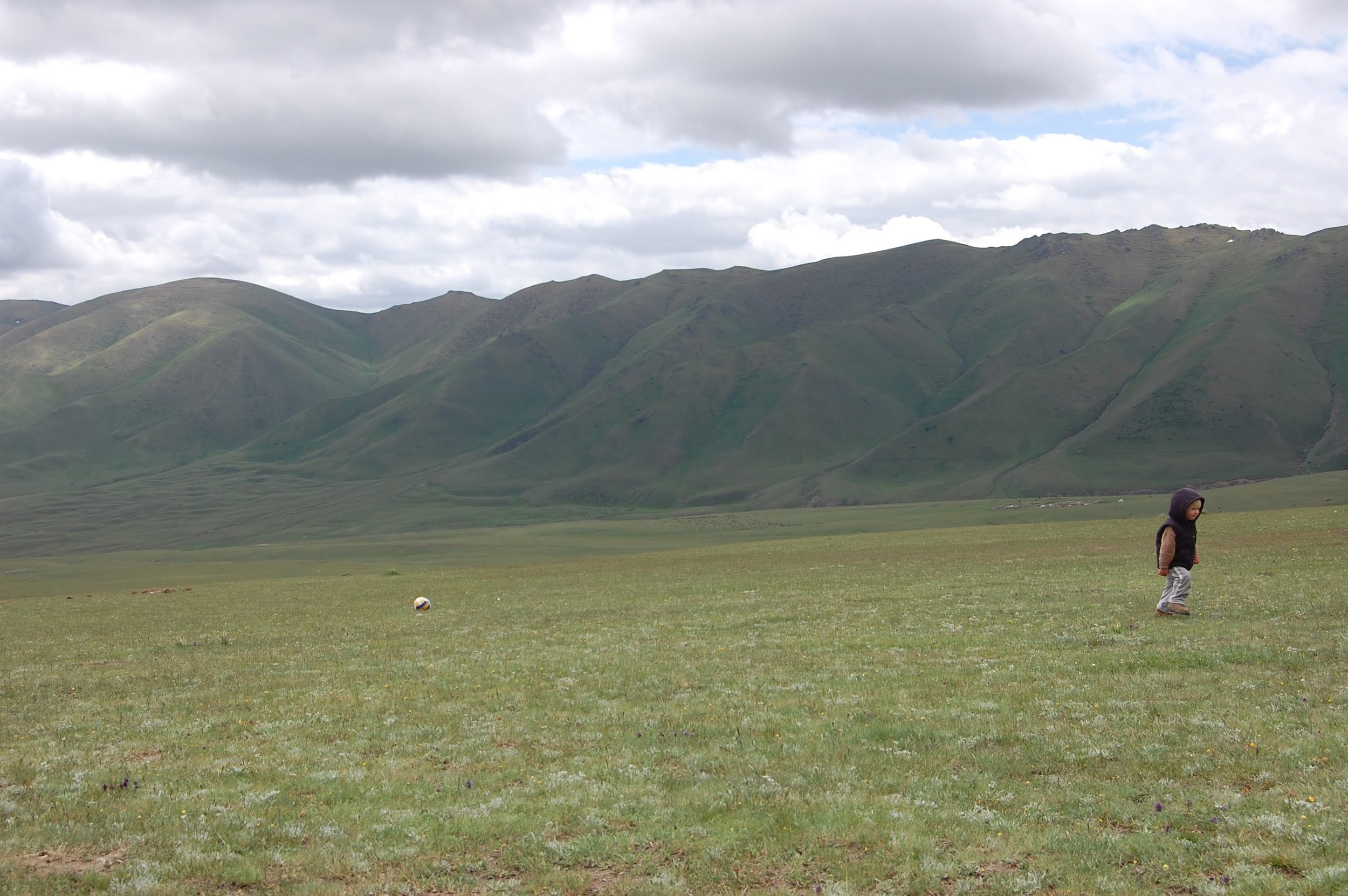
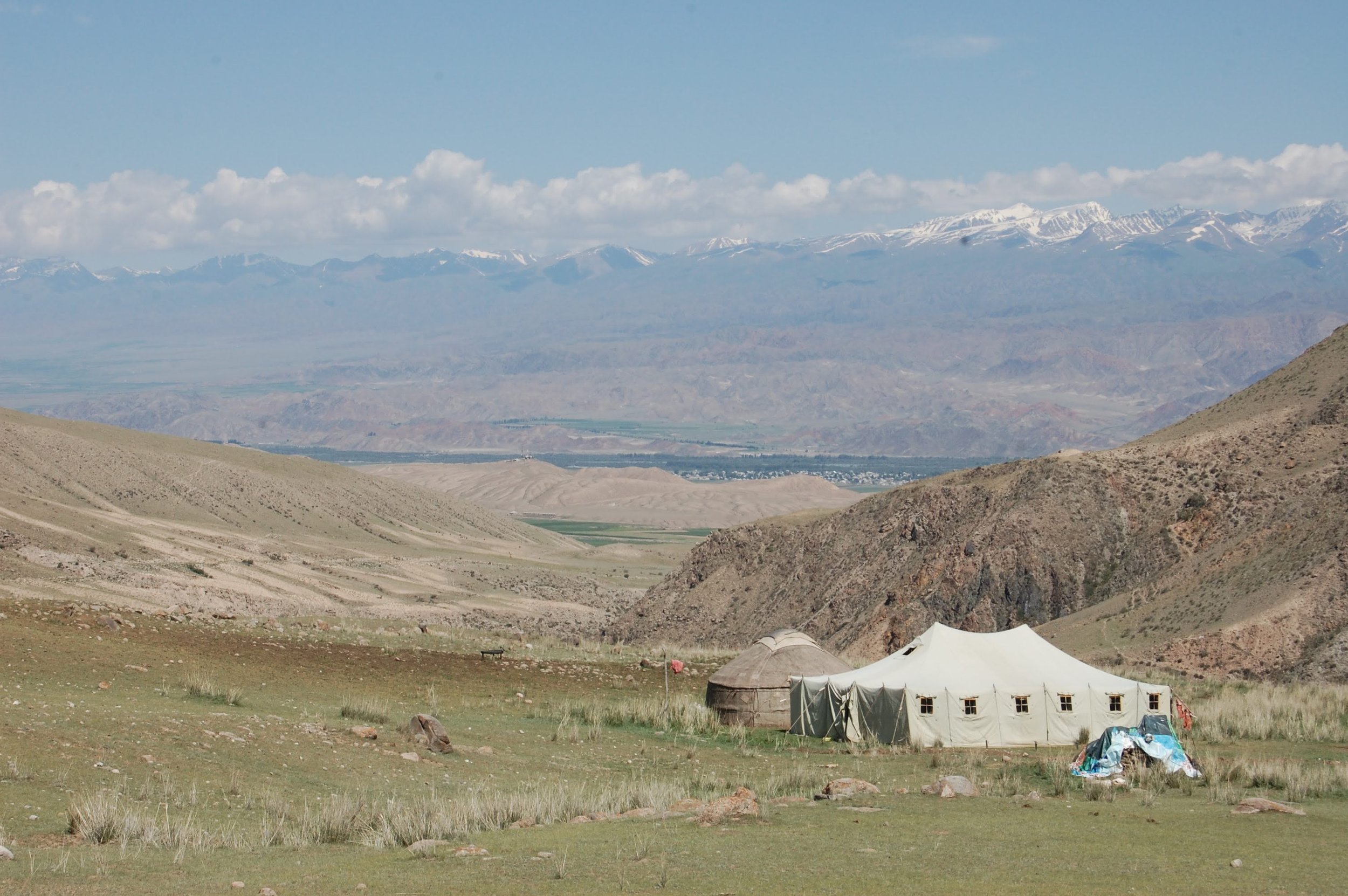
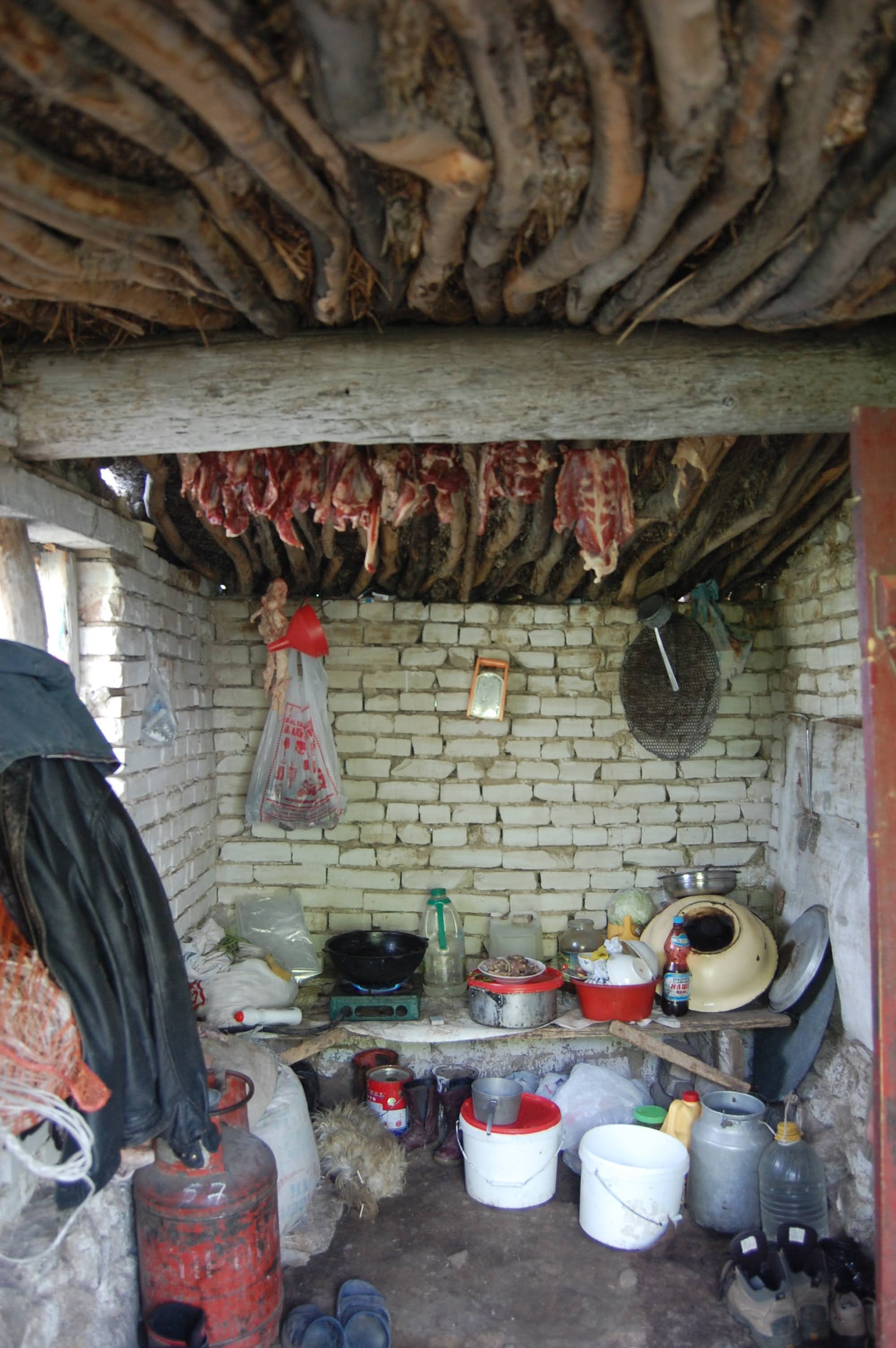
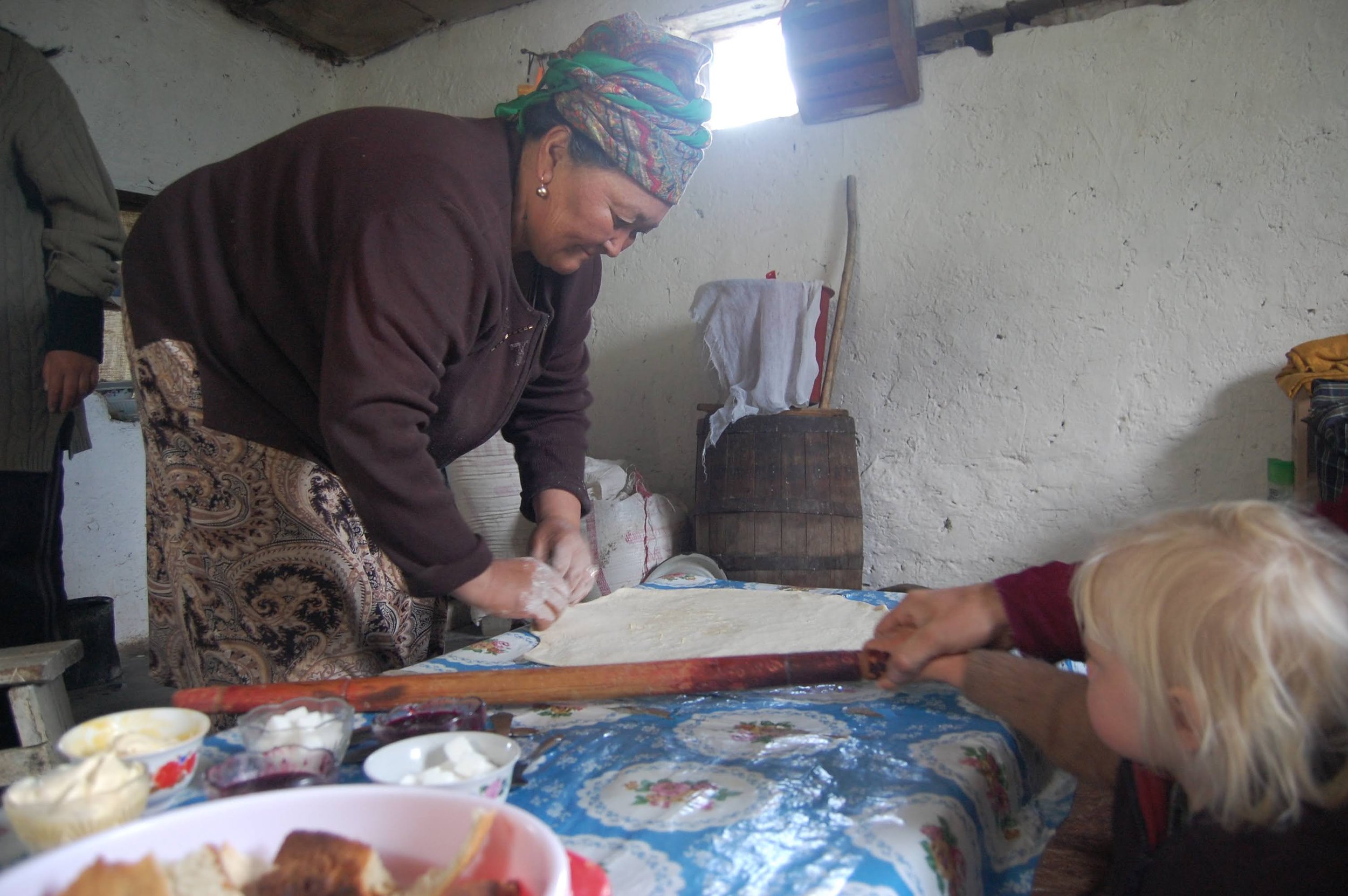
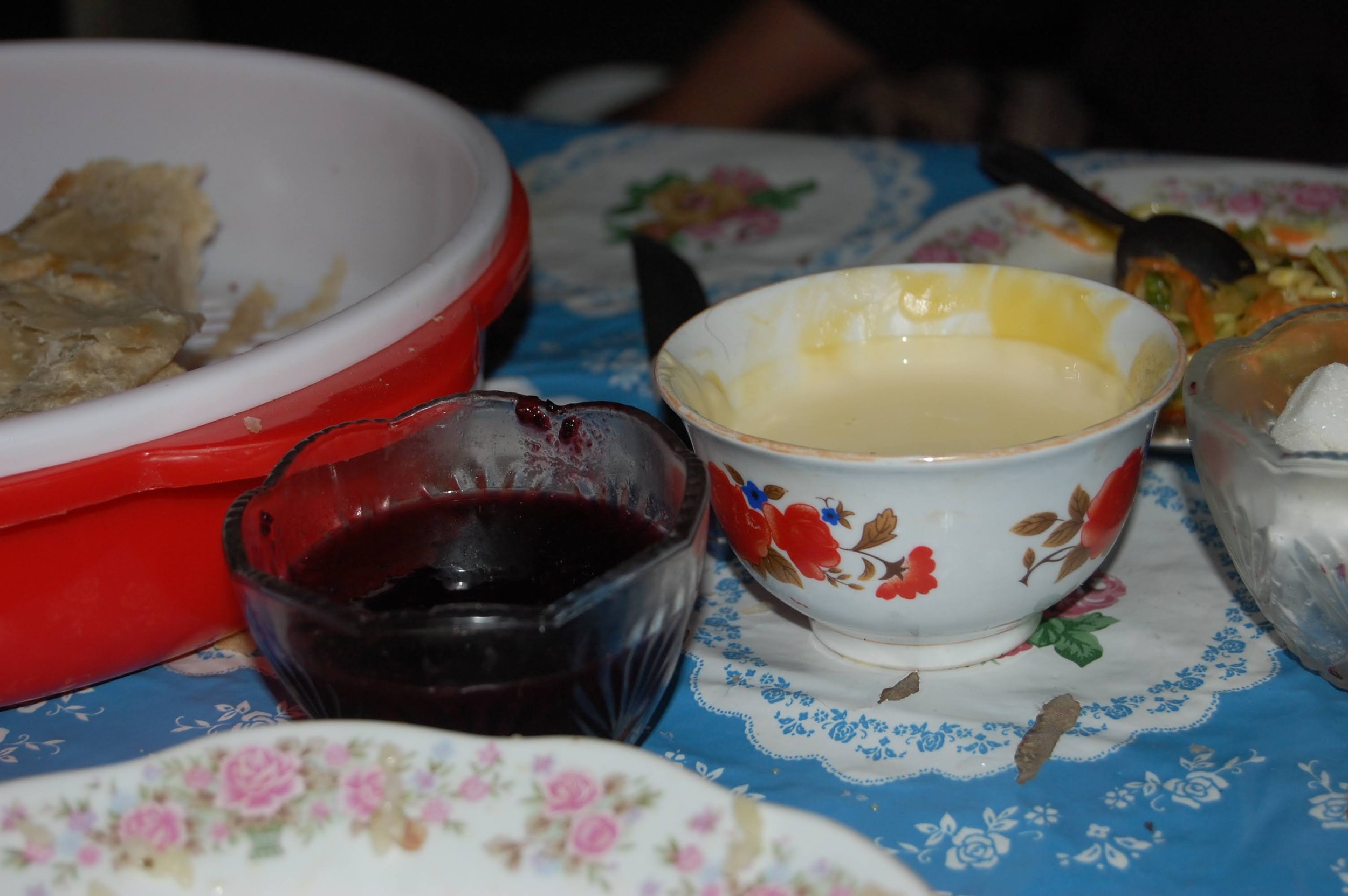
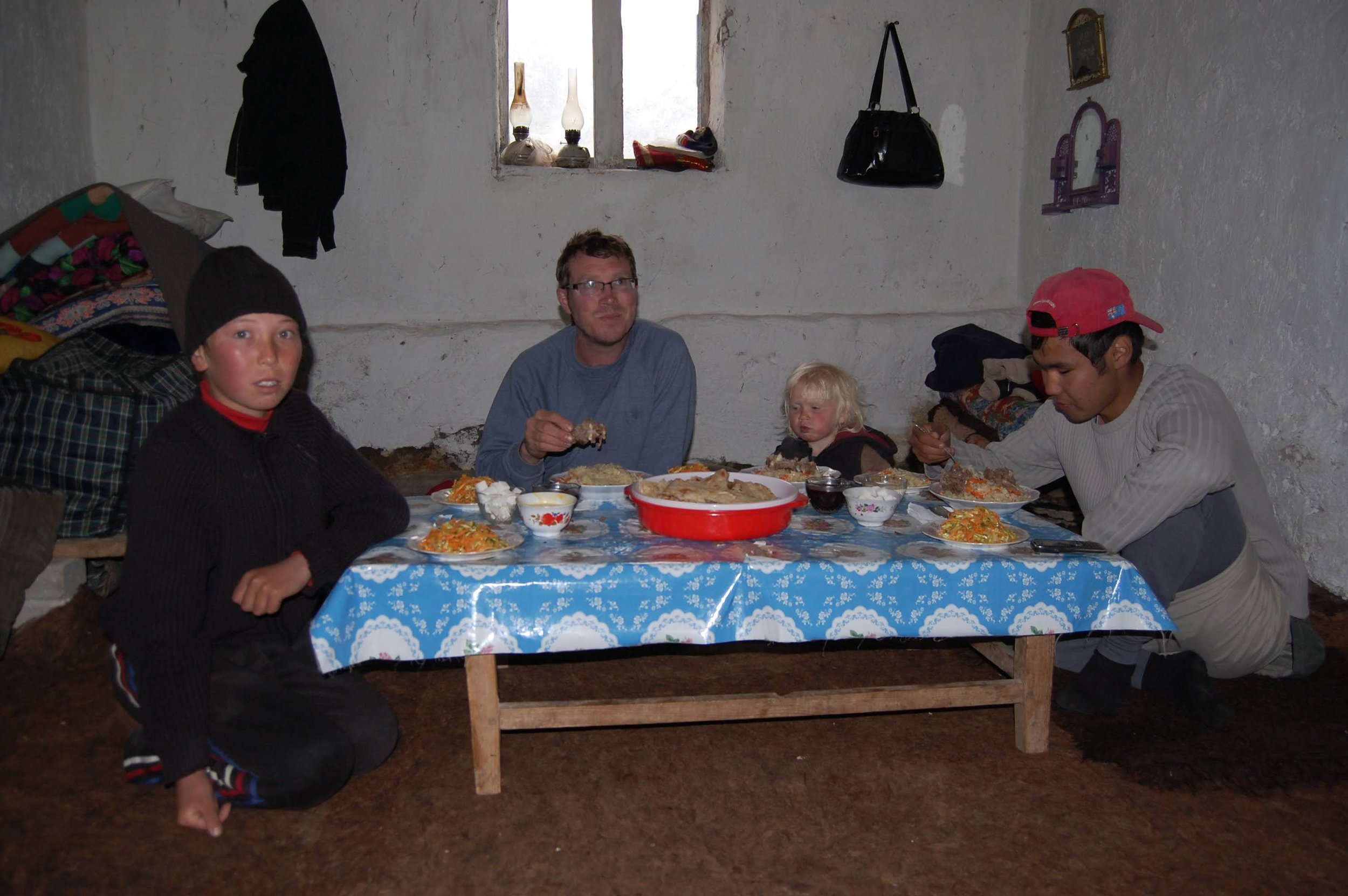
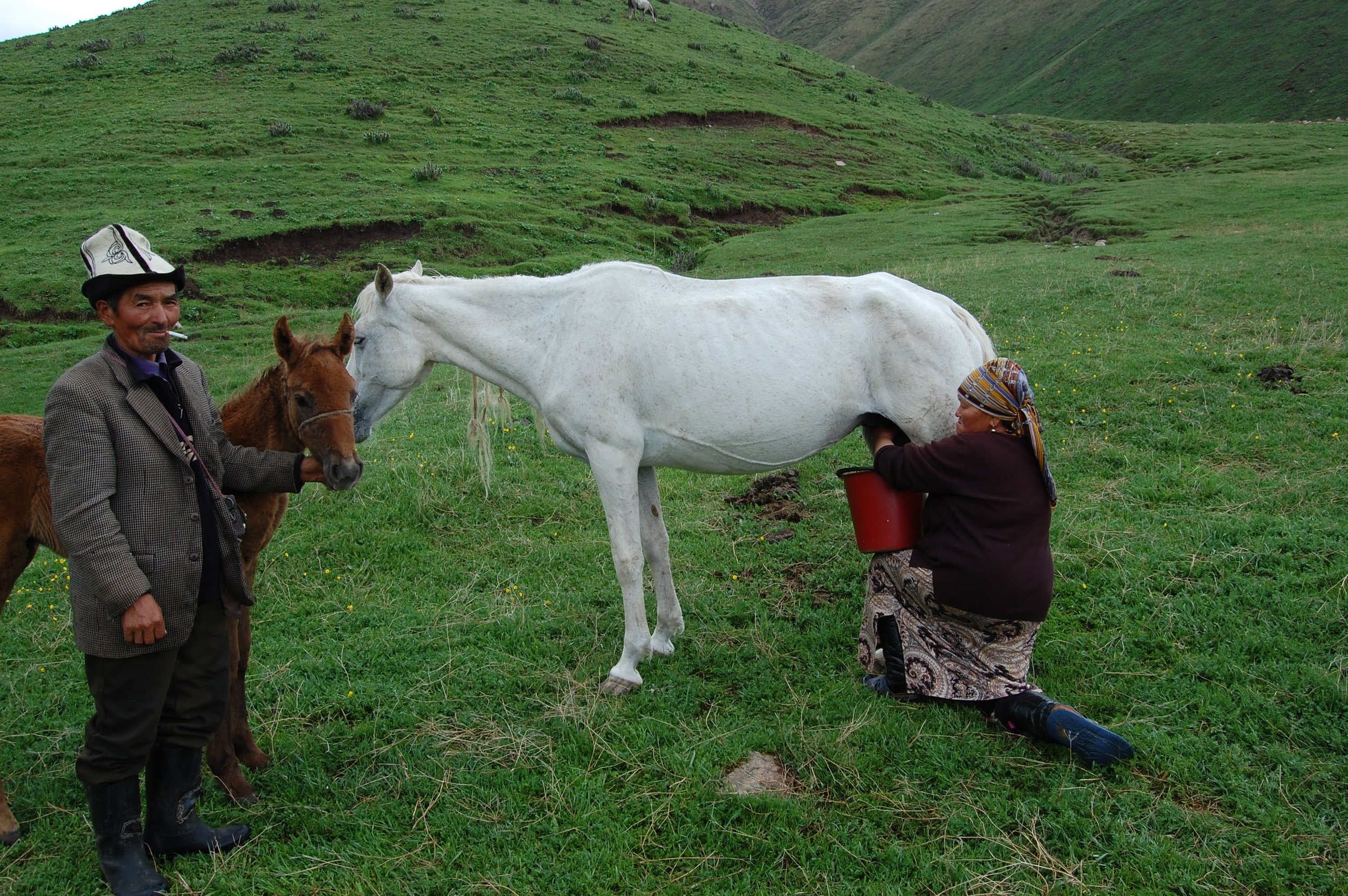
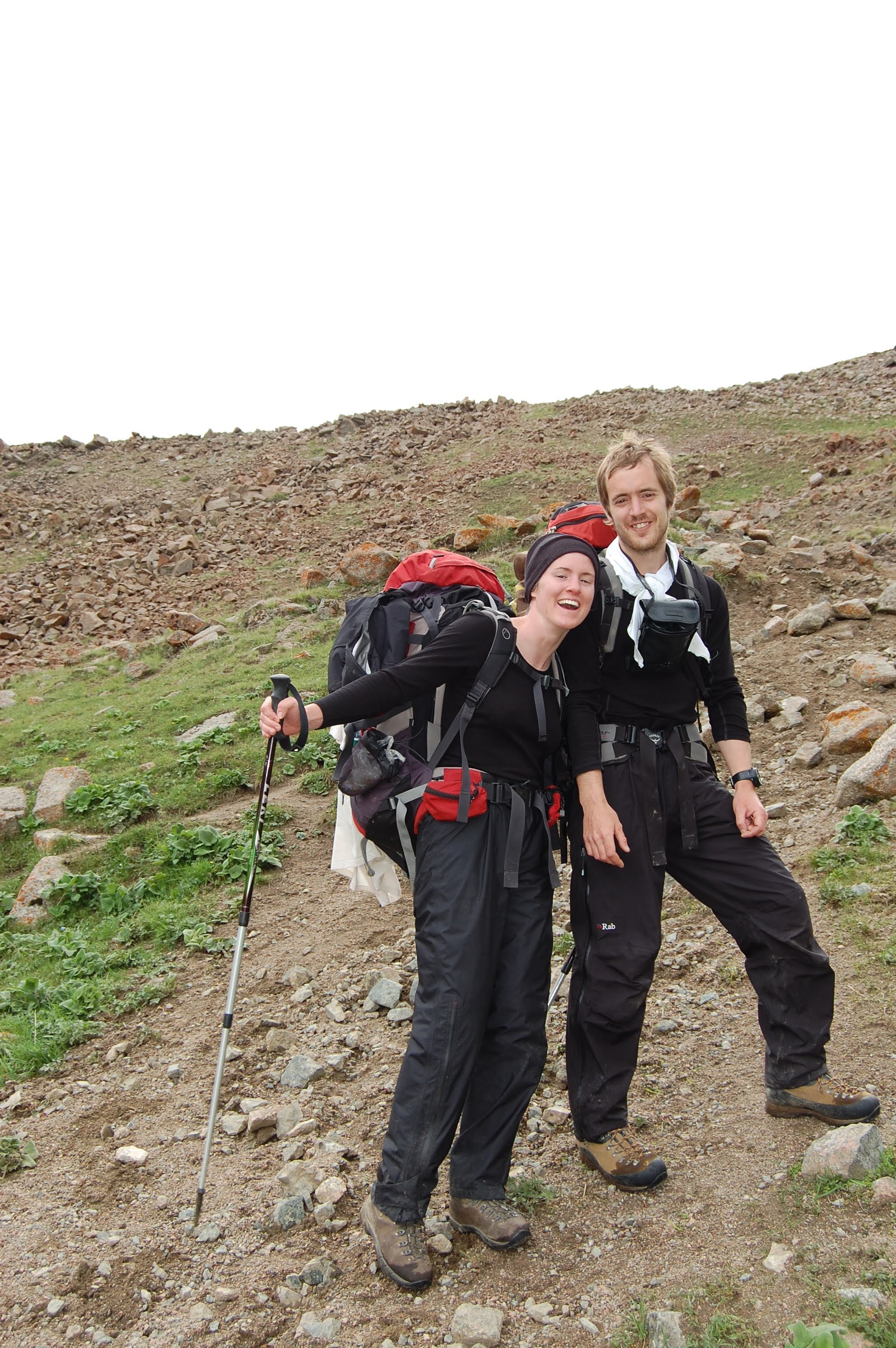
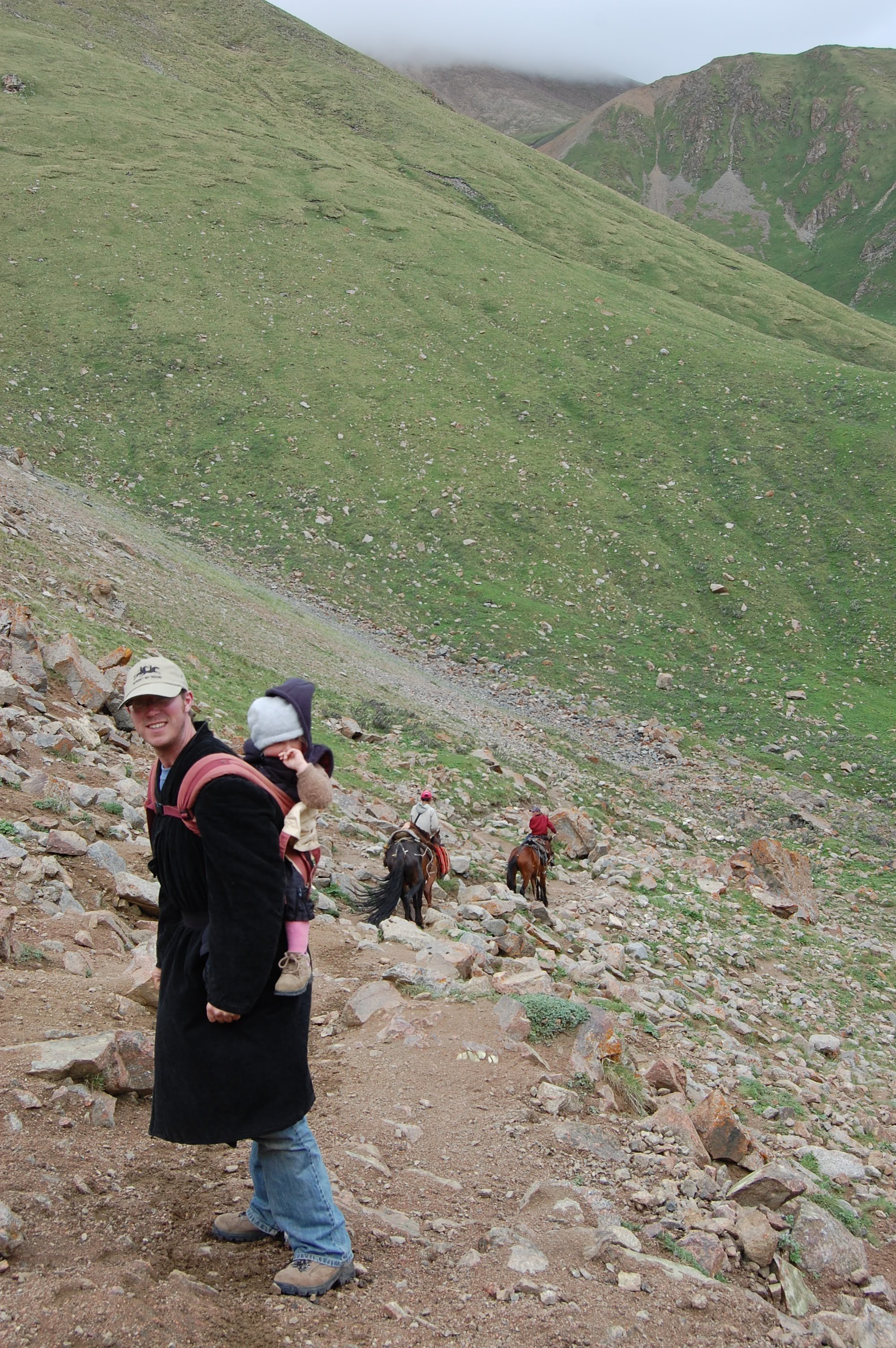
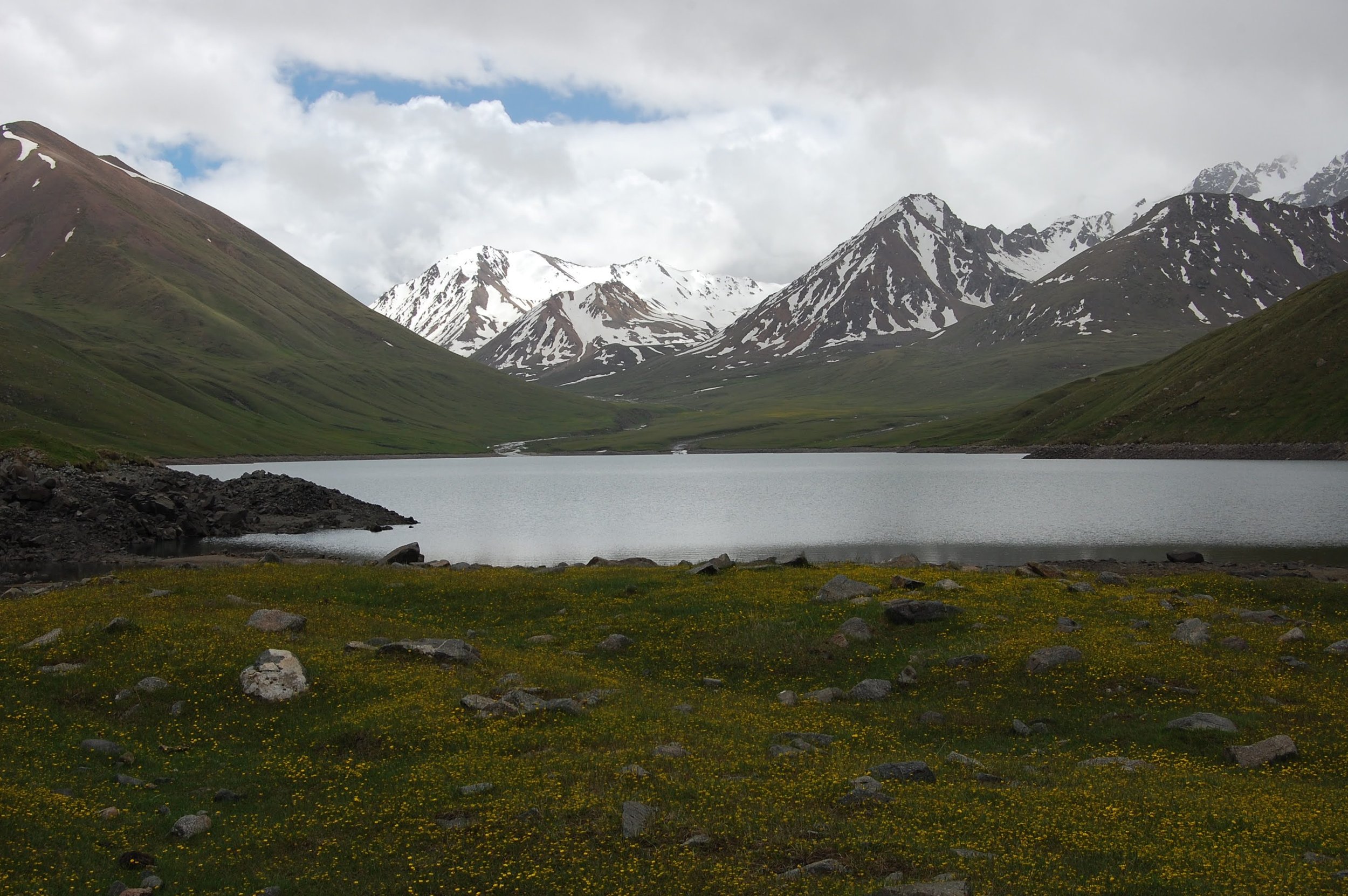
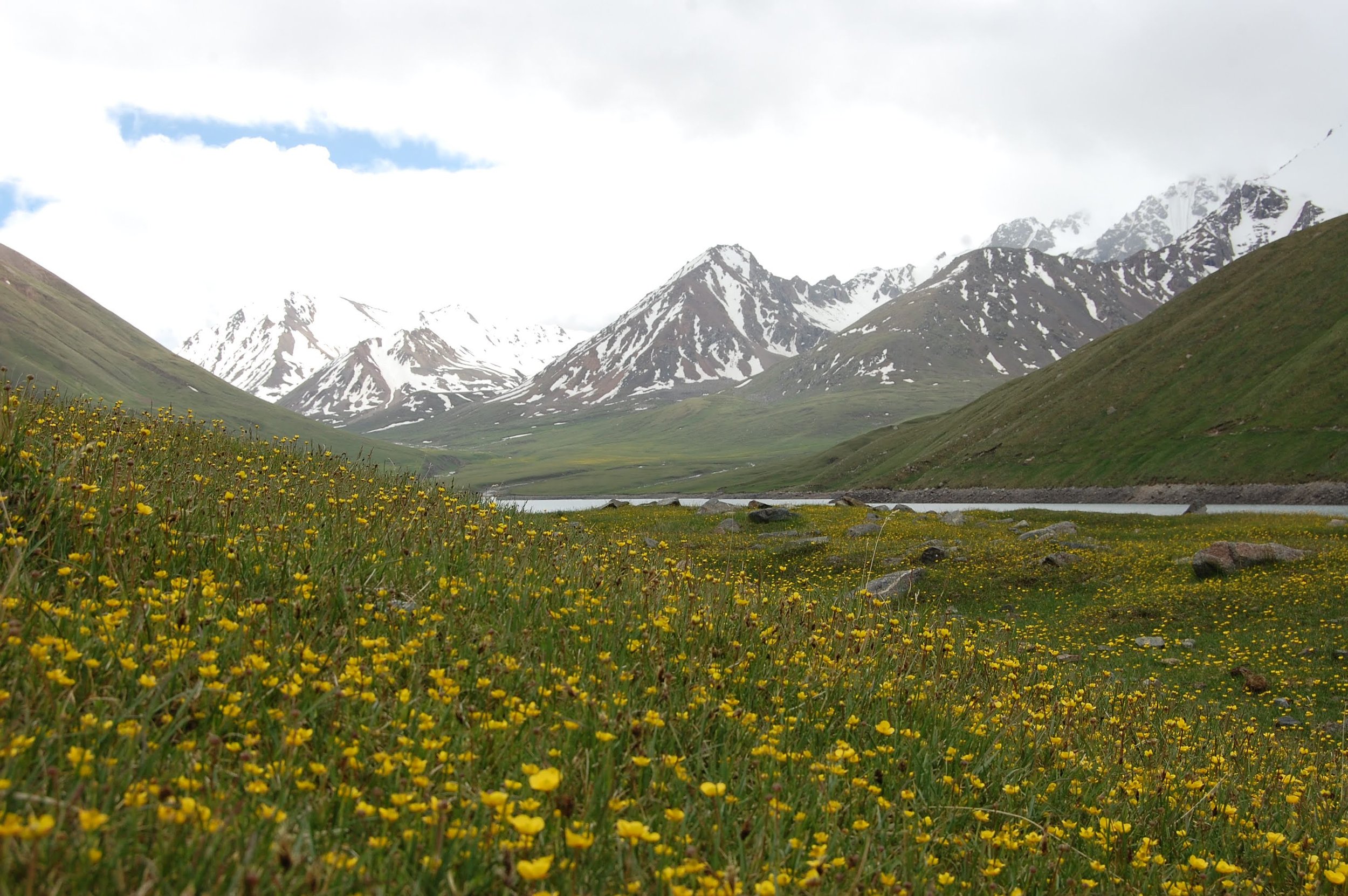
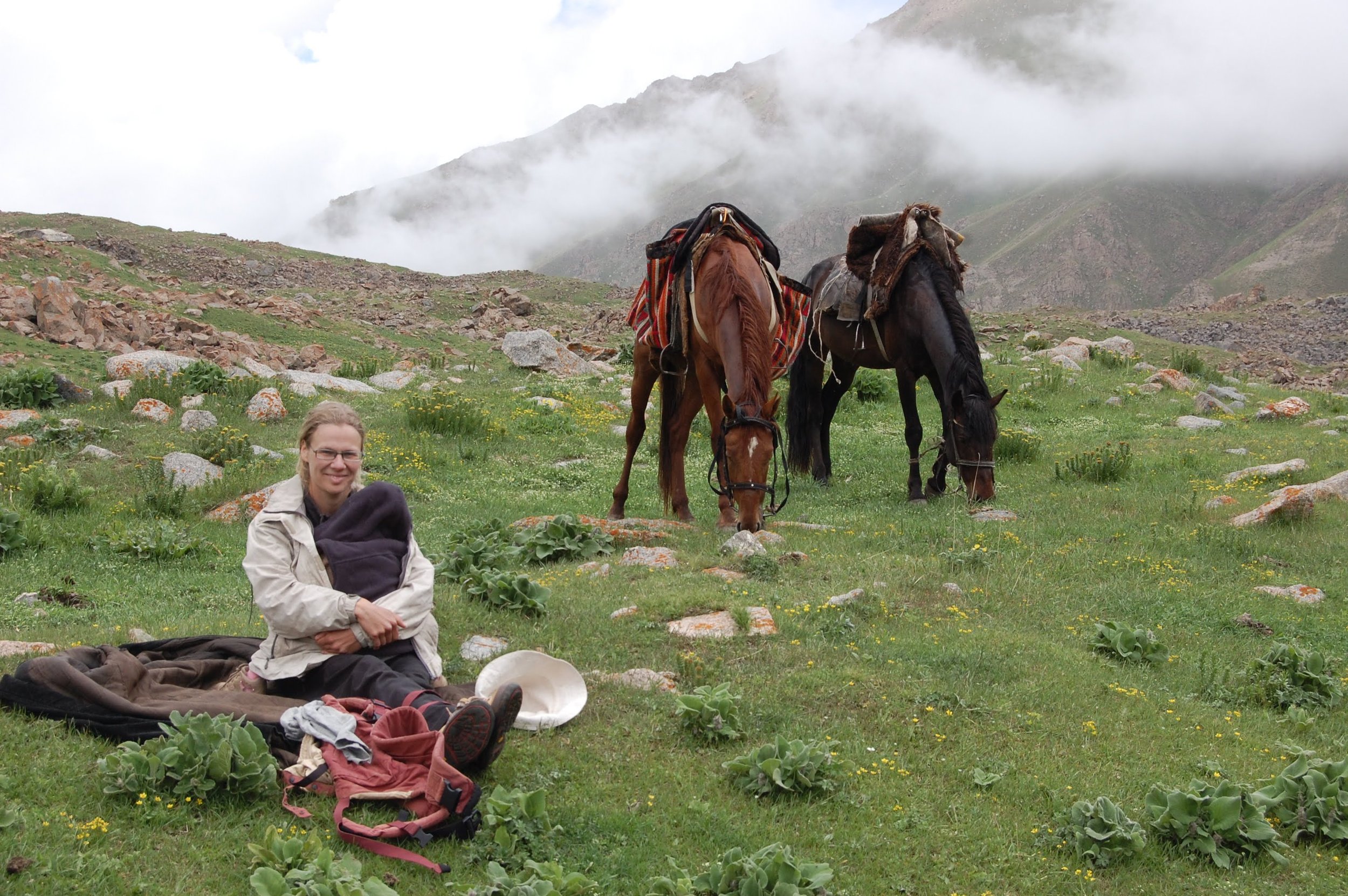
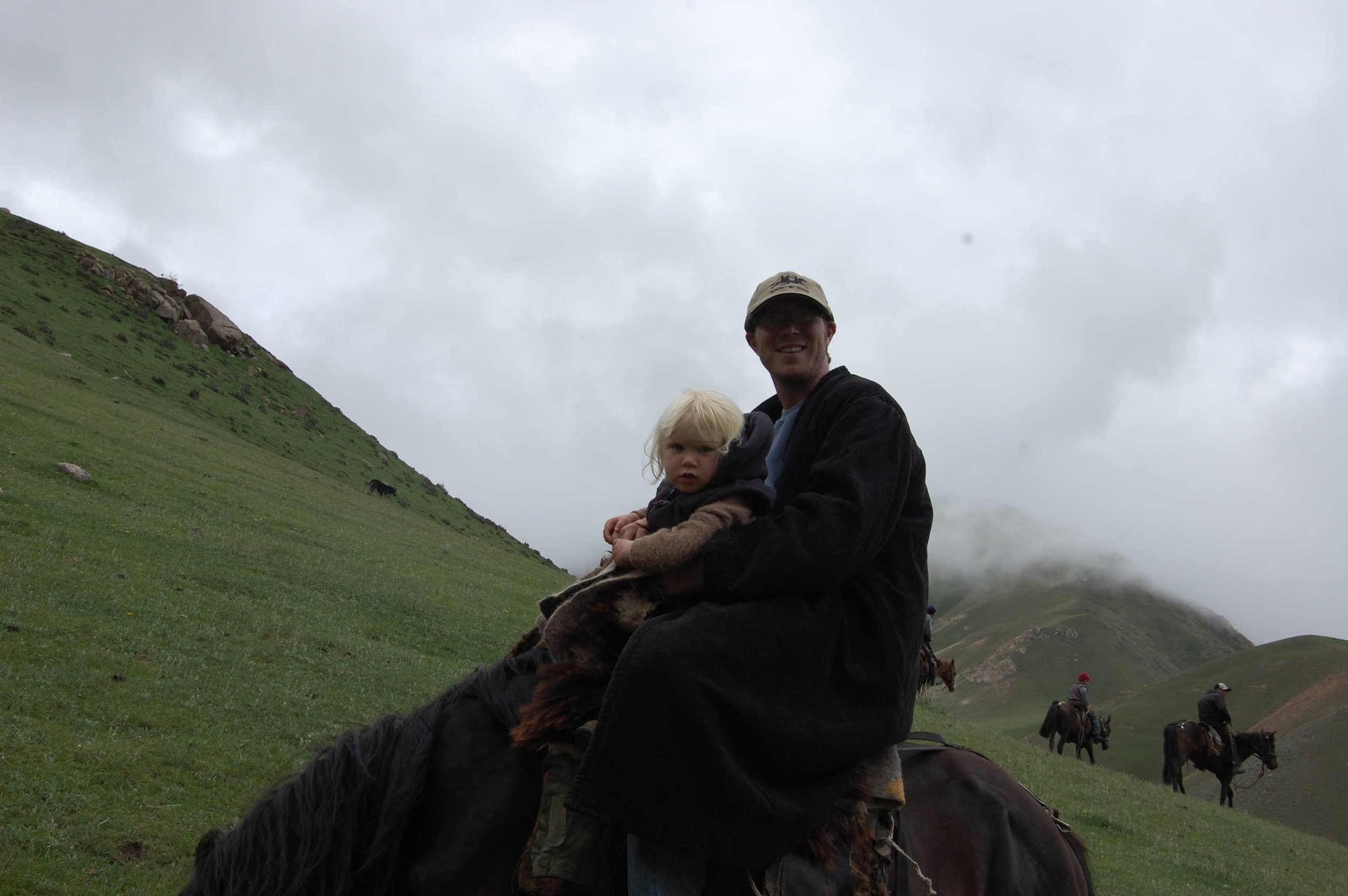
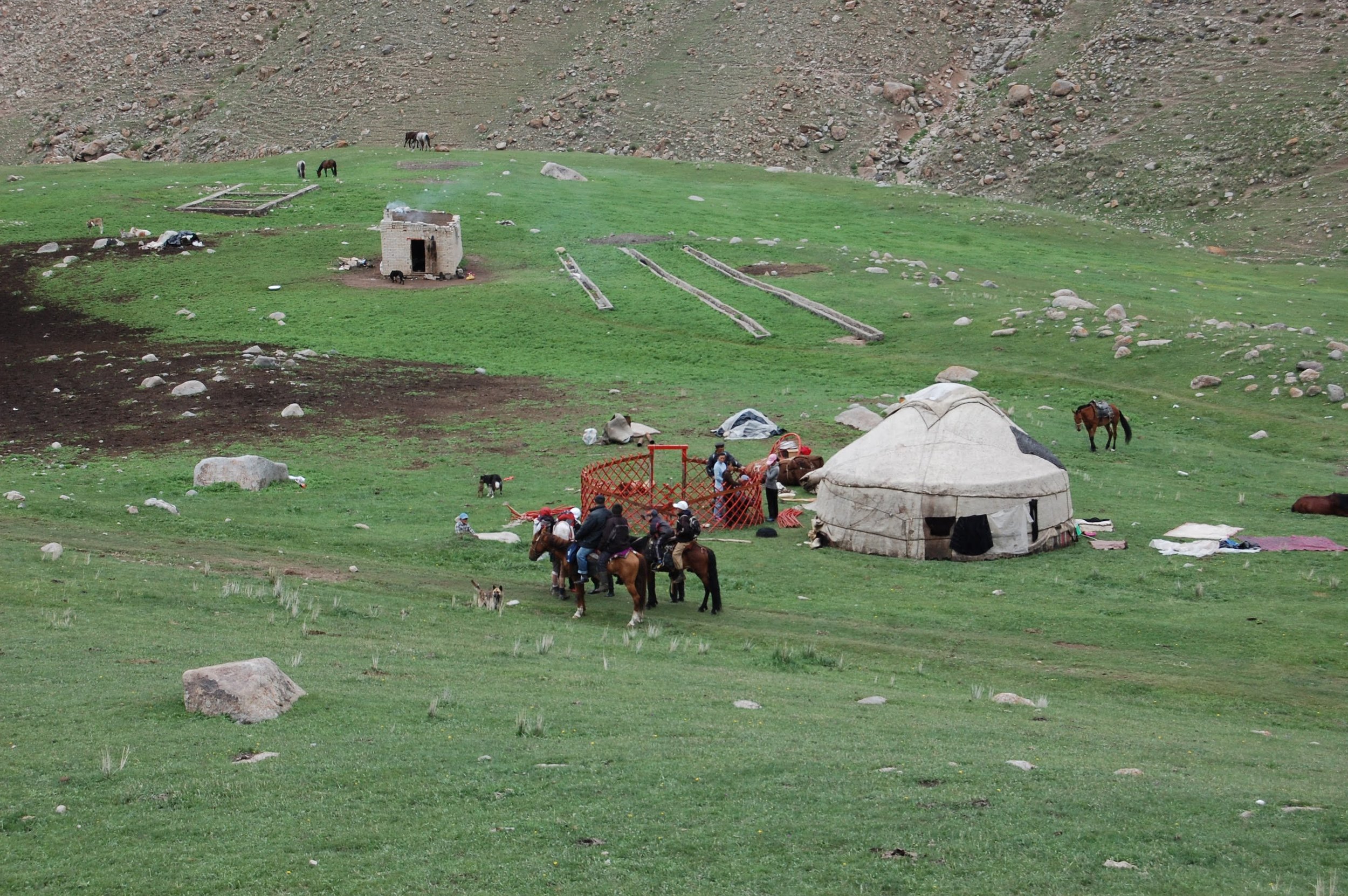
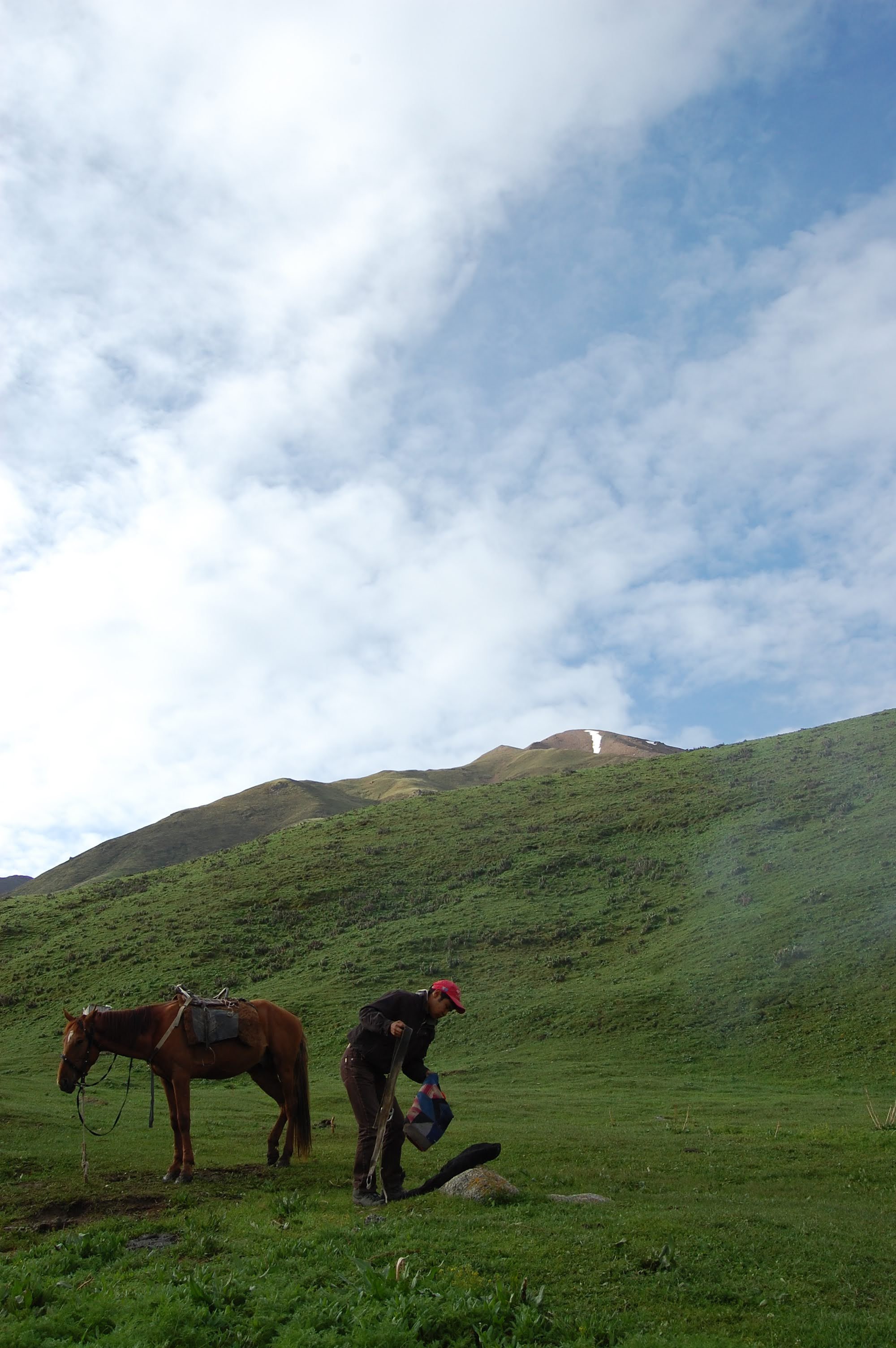
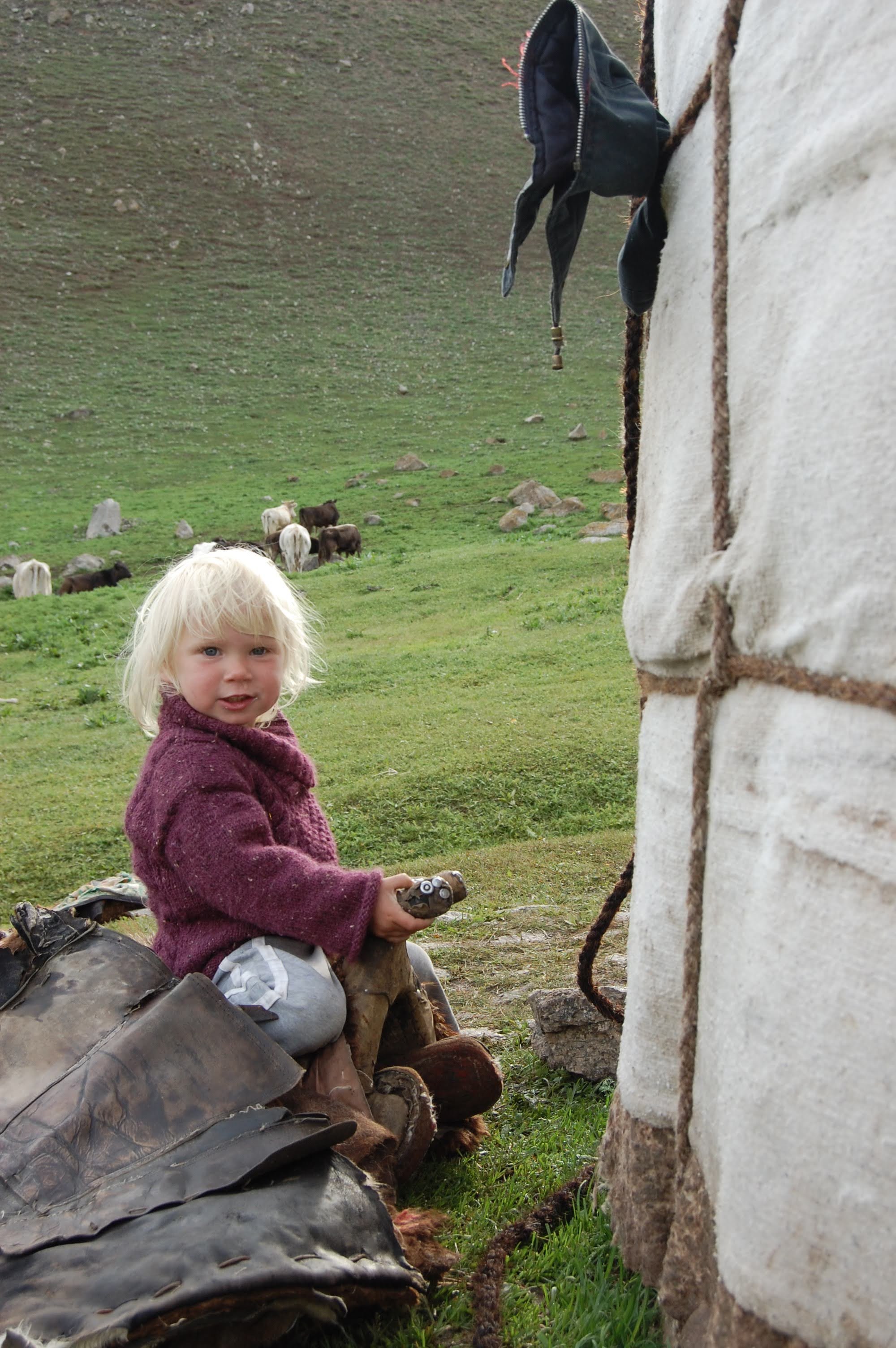
Our morning started early with loud and playful sounds from the animals. It took us a while to get prepared for our trek to lake Kol-Ukok (Lake in a Chest). We asked the eldest boy to accompany us to have another guide for support. He led my horse, whilst Inglis led Alex and Yara`s horse. Gulgun`s husband was concerned about Yara’s warmth so he gave Alex a felted coat which would protect both Alex and Yara if it rained. It was cloudy, which made it easier on the horses and on us. After two hours of climbing we reached about 3000 meters above sea level and then began a very steep incline before descending to the lake.
The lake is 17m deep and hosts mostly white fish and trout. Medicinal herbs are still used and grown along with wild garlic and a type of rhubarb. The lake had many tones of blue and with snow capped mountains in the distance. Yara slept while we had lunch. It started to rain as we headed back. It rains every afternoon in the mountains. We met a Swiss couple trekking into the mountains on their honeymoon! Although it rained on us for two hours, we still had smiles on our faces and sang songs. We changed out of our wet clothes and sat down to have another lunch! Coleslaw, rice with carrot and mutton was served with delicious thick cream for dipping bread into.
Alex and Yara walked to another camp to say hello and play with the other children. Gulgun and her grandkids came into the yurts to play chooka. Guljun has seven children all living in Bishkek. She was very sweet and adored Yara. It was very smoky in the yurt. Every half hour someone came into the yurt to put another block of dung onto the fire. After the fire got really hot the smoke settled and it became more comfortable. Gulgun`s husband and another man went on horseback to search for small sticks and bracken. After being out all day they returned with just two small bundles. Some of the sticks had sharp needles, perhaps it was a wild rose. They use the sticks very sparingly and sometimes use petrol to get the fire going.
Life is very simple, closely connected with the animals. Most of the time everyone is busy doing a task, even the small children helping to collect the dung. In the late afternoon all of the animals get a turn to come into the coral and poop. After the sheep leave the horses come in, stomp it down, poop, and the process starts again with the cows. Extra dung around the camp is also added and thrown into the coral. Shovels are then used to cut out bricks of dung and are placed around the coral to dry out.
Gulgan milked the horses and showed us how to prepare a flaky bread, similar to paratha. Like preparing a croissant it was folded many times with creamy butter and then cooked on top of the stove. Absolutely delicious! Gulgun receives about 150 tourists (mostly Chinese, Russian and Kyrgyz) from June to August. It seems to pay well and support her children and grandchildren.
Yurts in Kyrgyzstan are not fully nomadic anymore. Herders from the towns will go up into the mountains with their sheep and a yurt in June and travel higher whilst the flock and other animals (horses, cows, goats) graze for new pasture. In late September they slowly make their way down. The animals are cared for just outside of the village.
The noise of the animals woke us up, in a pleasant way. A breakfast of mashed potato and a thin tomato sauce was served. Guljun made the flaky bread served with cream which filled our bellies preparing us for the long journey back to Kochkor. We took family photos and gave a gift of maple syrup and summer savoury. We packed our bags and said our goodbyes. We rode for about an hour and stopped for a break beside a herder’s home. The sun was hot but shone from behind. Yara fell asleep as we descended down the mountain. It was a great feeling to get off the horses and stretch our legs!
The relationship between the family and their animals left us with an unforgettable impression of Kyrgyz mountain life. Continuous laughter, honking animals day and night, hard work and the dedication of everyone on the jailoo was a privilege to experience.
